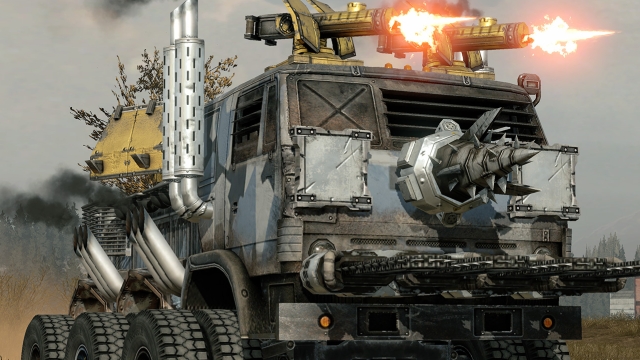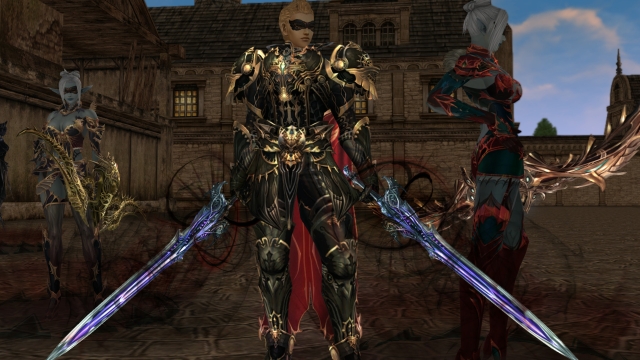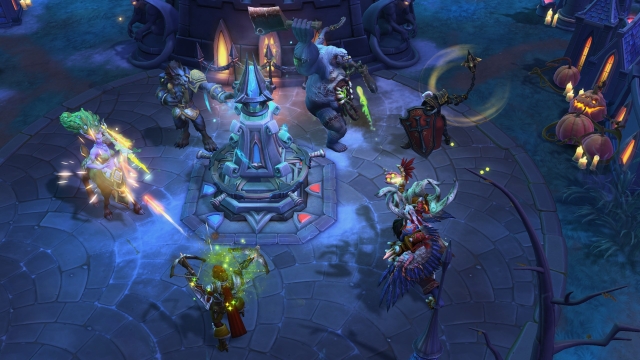This column isn’t just about MMORPG player organizations, but it spends a lot of time talking about them. There are several reasons for that, but the most important one is something that was true since the early days of the genre and remains important: MMORPGs, unlike many other online games, actively implement and support guild-style organization on a whole. It’s rare to find an MMORPG without guild support.
This does not, however, mean that MMORPGs are the only online game that benefits from that sort of structures. Clans, Steam groups, teams, all sorts of community organizations have popped up around games since the dawn of online gaming in general. Pretty much as soon as three people started playing a game together, they realized that they could accomplish more as a group. It’s pretty much human nature.
But it does become tricky to make and maintain a guild in a game that doesn’t support it, simply because all of the focus shifts from forming a group within the game to forming one outside of the game. I talk a lot in these columns about how for certain groups, the primary point of contact is in the game itself. If the game itself doesn’t support forming any sort of guild, your primary organizational point of contact has to be outside of it.
There are no easy solutions here. But it’s worth discussing. Let’s talk about how to have a guild (or clan, or team, &c) when the game itself doesn’t support it at all. Luckily, we have an easy suggestion right off of the bat.

Have a central point of organization
Have I mentioned Gamer Launch here recently? Yes, I have. And there’s a good reason for that which has nothing to do with knowing how my paychecks get signed. It’s a good site with a lot of tools for people to organize a guild, even – one might even say especially – when you’re dealing with a game that has no explicit support for that guild. It’s an extension of the older days when there was no such thing as an in-game guild invite, back when your team affiliation was entirely tied into your tag.
Sometimes it still is, because history is cyclical.
Gamer Launch is a fine option. Having a Steam group page would work too, albeit with fewer points of organization. You could have a Facebook group if you feel the need to use Facebook for reasons that no human being has yet managed to decipher. The point is that you need to have something that serves as The Guild as an entity. If it’s not a line in the game databases, it should be a space, something where people can congregate, discuss things, and have a rallying point.
In cases like these, using a newsletter can almost work better than having a website, if you remember the discussion on using newsletters effectively from a few weeks back. That newsletter creates a sense of ongoing camaraderie and communication, something which all of the members actively need to work to keep going. It’s not a passive thing, and it promotes engagement.
But just having the space for the guild isn’t enough, because you need an identity that’s shared. That leads to the next point, no less important but perhaps a bit less obvious…

Make the game more of a guild activity
You can play Team Fortress 2 any time that you want. But if you want to have a team together in the game, you probably want to play it less frequently, and almost always with as many members of your team as you can wrangle.
In games with weak-to-no support for group structure, you aren’t going to be bonded by a shared chat. Even having a website isn’t necessarily going to bind you all together, unless having everyone you passed in the hallways in high school as a Facebook friend makes you bosom buddies. No, what’s going to bind you together as a A Group of People Playing a Game Together is going to be about shared experiences.
Thus, quite simply, you want to share as many experiences as possible. And that means doing as many things as you possibly can as a group, starting and focusing upon the game in question.
This is where a lot of groups run into troubles, because technically having an affiliation with a group means very little if your triumphs and failures aren’t shared. If you have a team that you belong to but don’t share any big wins or upsets with the people in question, you may as well just have a forum you occasionally visit. You want to make sure that you associate the time in the game with the people you want to share your time with, to make shared experiences the norm rather than the exception.
There are limits to what you can accomplish as a group, sure. Sometimes you want to do things by yourself, or play the game by yourself, or even work on your tendency to react badly to non-group members. These are all good things. But you want to make shared experiences a thing.
But there’s another aspect that tends to make these groups a little harder to maintain, and that’s the fact that you want to…

Make membership feel rewarding
If the reason you’re in a guild with other people is just because you all know one another and you like being in a guild together, this is a bit less applicable. But if you’re in a guild with people you met through the game, this becomes more important, because your goal isn’t just to have a guild bonded by familiarity – you want people who want to be working together.
MMORPGs have several advantages here because there are lots of things you can do as a guild that don’t necessarily work alone. But League of Legends can be casually played alone, with no need for a full team. So you want being in a team to not just be a chore or something where people are bonding over failures – you want to provide rewards for your members. You want to make being in the group feel like it’s a rewarding thing.
Some games make this easier than others. I have friends, for example, who are part of teams for MOBA games that organize individual members going to conventions with free skins or goodies. So one person from the guild goes to PAX East and picks up a skin for everyone in the guild, thus meaning that you get a bit of an intangible reward just for being a member.
There are other ways to make presence in a guild feel rewarding. The obvious thing is having a team which plays better together than apart, practicing and climbing the ranks together. You could also have organized team matches based on otherwise unpopular rulesets, map variants, and the like.
Or perhaps you just want people to feel like they have a safe space to play in, which in and of itself can be rewarding.
The important thing with all of these points is that the game itself is not going to make these things easy for you. You have to really twist the game’s arm and force outside systems to work in your favor. But when done correctly, you still enjoy the benefits of having a group together; it just takes a bit of extra legwork on your end first.







Published: Mar 10, 2016 05:58 am